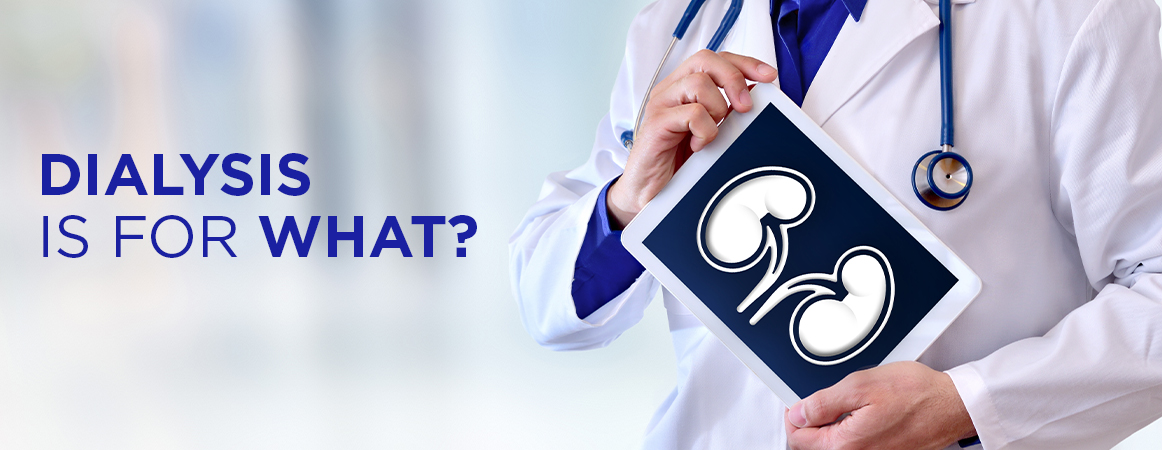Dialysis Is For What?
When the kidneys stop functioning properly, a treatment called dialysis is used to eliminate waste and extra fluid from the blood. In this process, blood is diverted to a machine to be cleaned.
Normal kidney function involves filtering the blood to remove toxic wastes and extra fluid, which is then converted into urine and expelled from the body. This process aids in maintaining a healthy balance of fluids and electrolytes.
Those whose kidneys are weak or damaged may have trouble removing waste and extra water from circulation. The procedure is carried out artificially through dialysis.
Symptoms of Kidney Failure
Chronic renal failure develops over time. Normal kidney function is still achievable even when just one kidney or both kidneys function partially. The signs of a kidney disorder may take a long time to manifest.
When symptoms do appear, they can differ between people, which makes it more challenging to determine renal failure promptly.
Kidney failure symptoms could include:
- Tiredness or weariness
- Blood in urine
- Increasing frequency of urination, particularly during the night
- Skin itch
- Erectile dysfunction
- Nausea
- Breathing difficulty
- Water retention causes swelling of hands, feet, and ankles
- Protein in urine
Kidney failure can result from a sudden injury. When this occurs, symptoms frequently start more severe and advance more quickly.
Why Is Dialysis Used?
A healthy kidney system keeps your body from storing excess water, waste, and other impurities and toxins. They also aid in maintaining healthy blood pressure and balancing the levels of various chemicals in the blood. Sodium and potassium may be among these substances. Even a type of vitamin D that enhances calcium absorption is activated by your kidneys.
Dialysis can assist in keeping the body functioning as normally as possible when your kidneys are unable to carry out these tasks due to illness or damage. Salts and other waste materials will build up in the blood without dialysis, poisoning the body and harming other organs.
Who Needs Dialysis?
You need either a kidney transplant or dialysis if your kidney disease progresses to the point that the body can no longer function normally.
You typically start dialysis when you start experiencing symptoms or when lab tests show that your blood contains dangerous quantities of waste. Vomiting, tiredness, edema, and nausea are all signs of kidney failure.
Your age, level of energy, overall health, the results of lab tests, and how dedicated you are to sticking to a treatment plan will all affect when you should start dialysis. Although it demands a lot of your time, it can improve your health and lengthen your life.
Your doctor will let you know when you should start getting treatment. They will also talk about which one could be best for you.
There are two types of dialysis:
Hemodialysis
Outside of your body, your blood is purified and then returned to you after passing through a filter. The process can be performed at a dialysis facility or at home.
Peritoneal dialysis
Within your body, blood is cleaned. A particular fluid is injected into the area to eliminate waste from the blood that flows via the small capillaries in your abdominal cavity. After that, the fluid is drained away. This type of dialysis is typically performed at home.
When To See A Doctor?
Almost always, kidney pain indicates that your kidneys are being affected by something. To find out what is causing your kidney pain, speak with a doctor as soon as you can.
You may have renal failure, in which your kidneys stop functioning if the ailment that was the source of your kidney pain is not promptly and effectively addressed.
If your pain is severe and came on unexpectedly, it’s crucial to see a doctor immediately away. This frequently results from a serious issue that needs immediate attention, such as bleeding into your kidney or renal vein thrombosis.
The MMI Hospital has the best dialysis center in Karachi due to the quality of care it offers. For all kidney disease patients, it offers free or inexpensive dialysis.


